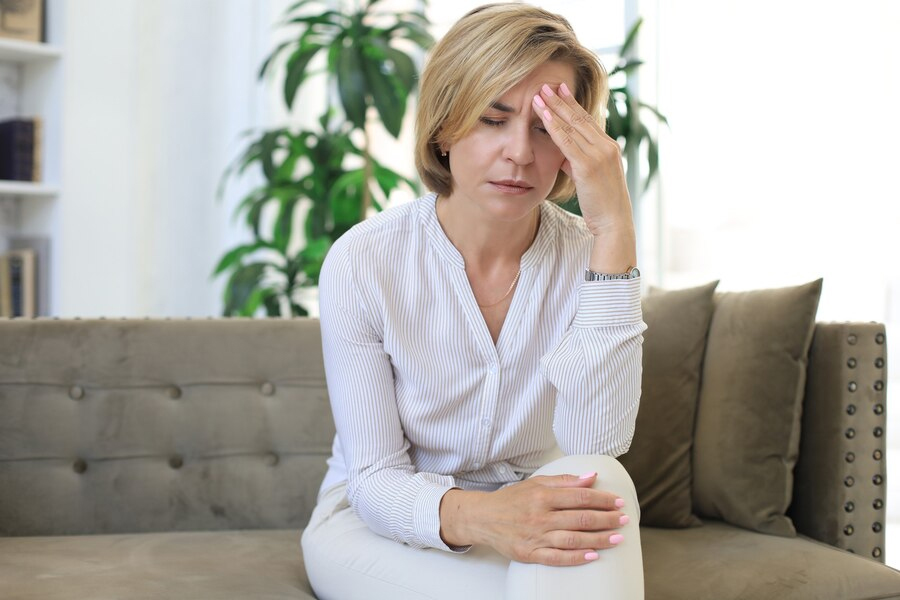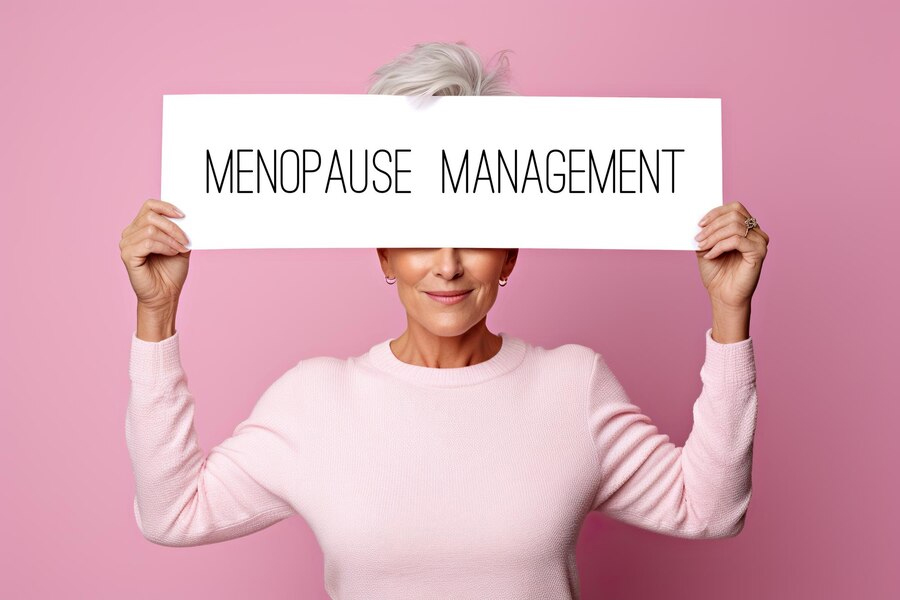
Early menopause is defined as the onset of menopause before the age of 40. It can be a challenging experience for certain women as it not only brings along physical symptoms such as hot flashes, night sweats, and mood swings but also emotional and psychological burdens due to the sudden nature of its arrival. For women facing early menopause, the question often arises, if one can reverse this process naturally.
Table of Content:-
We touched base with our expert, Pinki Das, Associate Professor, Department of Nursing - Sharda University, to understand if reversing menopause naturally is possible. Here is what she shared with us.
While menopause is a natural part of ageing and generally marks the end of a woman’s reproductive years, early menopause can feel like an interruption to life’s normal course. “Unfortunately, there is no guaranteed way to reverse menopause naturally, as the process is rooted in genetics, hormonal imbalances, or medical interventions. However, several strategies may help manage symptoms, support overall health, and, in some cases, potentially delay the progression of early menopause,” Pinki explained.

Understanding Early Menopause
Before exploring natural remedies, it’s important to understand what early menopause is. According to the Mayo Clinic, menopause is diagnosed after 12 consecutive months without a period, and the average age of onset is 51. Early menopause, or Premature Ovarian Insufficiency (POI), can be triggered by various factors, including genetic predisposition, autoimmune conditions, certain medical treatments (such as chemotherapy), or lifestyle factors like stress or poor nutrition.
In early menopause, the ovaries stop producing eggs and reduce the production of oestrogen and progesterone, leading to hormonal imbalances. This can affect not just reproductive health but also bone density, cardiovascular health, and mood regulation.
Also Read: Expert Shares 6 Things To Do To Prepare Yourself For Menopause
Importance Of Nutrition For Hormonal Balance
One of the most powerful tools in managing the symptoms of early menopause is diet. While a specific ‘reverse menopause’ diet doesn’t exist, our expert Pinki shared that certain nutritional strategies can help support hormonal health, manage symptoms, and reduce the risk of complications associated with menopause.
1. Phytoestrogens
Phytoestrogens, plant compounds that mimic oestrogen, can be particularly beneficial. Foods rich in phytoestrogens include soy products (like tofu, tempeh, and edamame), flaxseeds, sesame seeds, and legumes. These foods can help balance oestrogen levels in the body, alleviating some of the symptoms of menopause.
2. Vitamin D And Calcium
Vitamin D and calcium are crucial for bone health, which becomes a concern as oestrogen levels drop. Ensuring adequate intake of both can support bone density and reduce the risk of osteoporosis. Sunlight, fortified foods, and supplements are all good sources of vitamin D, while dairy, leafy greens, and fortified plant milk are rich in calcium.
3. Whole Food
A whole foods-based diet rich in fruits, vegetables, lean proteins, healthy fats, and whole grains can help reduce inflammation and oxidative stress, both of which can exacerbate menopause symptoms.

Also Read: Menopause Can Cause Oral Health Problems: Expert Discusses Link And Shares Tips To Mitigate Risk
Importance Of Regular Exercise
Regular physical activity is one of the most effective ways to manage menopause symptoms naturally. “Exercise not only helps regulate weight, which can fluctuate during menopause, but it also supports cardiovascular health and bone density,” Pinki shared.
Exercise also promotes the release of endorphins, which can improve mood and reduce feelings of anxiety or depression often associated with hormonal changes.
Stress Management And Adequate Sleep
Chronic stress can exacerbate the symptoms of early menopause by disrupting hormonal balance. Cortisol, the body’s stress hormone, can interfere with the production of oestrogen and progesterone, making symptoms like hot flashes and mood swings more intense. Incorporating stress management techniques into daily life can help mitigate these effects.
Sleep on the other hand is another critical factor in managing stress and supporting hormonal balance. Poor sleep quality is common during menopause due to hot flashes and night sweats, but consistently poor sleep can worsen other symptoms. Creating a relaxing bedtime routine and managing environmental factors (like keeping the bedroom cool and dark) can improve sleep quality.
It is important to note that in some cases, Hormone Replacement Therapy (HRT) or other medical treatments may be necessary to support hormonal balance, prevent bone loss, and reduce the risk of cardiovascular disease. Hence, it is important to get in touch with your doctor to help guide you through treatment options, taking into account your personal health history and risk factors.
Bottomline
While it’s not possible to reverse early menopause naturally, there are several ways to manage its symptoms and support overall health. A combination of dietary changes, exercise, stress management, and traditional therapies may help alleviate symptoms and improve quality of life during this challenging phase.
Also watch this video
How we keep this article up to date:
We work with experts and keep a close eye on the latest in health and wellness. Whenever there is a new research or helpful information, we update our articles with accurate and useful advice.
Current Version